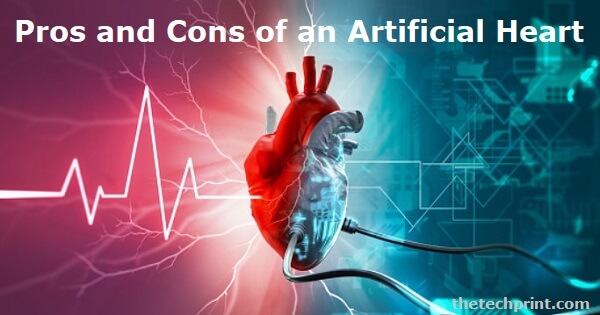When a person has heart failure, a mechanical device called an artificial heart replaces the natural heart's function. These devices are frequently utilized as a bridge to transplant to maintain the patient. Whole and partial artificial hearts are the two primary varieties of artificial hearts (heart assist devices).
A person with heart failure who is not a candidate for a heart transplant may be saved by an artificial heart.
A patient can live long enough to obtain a heart transplant by using an artificial heart as a bridge to the transplant.
A patient's quality of life can be enhanced with an artificial heart by easing their heart failure symptoms and enabling them to resume their regular activities.
Patients with mechanical hearts have a better chance of surviving than those awaiting heart transplants.
The artificial heart has a form that is similar to the human heart and is electrohydraulically powered. In patients with biventricular heart failure that has progressed to the end stage, it is recommended as a bridge to transplant. Other than artificial hearts, several effective heart devices can postpone the need for transplants for 15 years. With various designs, these ventricular assist devices have found approval in several countries worldwide. The system may make transplants unnecessary. Yet, there are a lot of drawbacks of artificial hearts to take into account.
The production and maintenance of artificial hearts are incredibly expensive.
Few hospitals worldwide have the training and equipment necessary to implant artificial hearts, which are not generally available.
There are possible problems with every surgical surgery, such as bleeding or infection.
Artificial hearts have a finite lifespan and will ultimately require replacement. The patient's immune system may reject the mechanical heart since it is a foreign thing. A patient's movement and quality of life may be restricted by artificial hearts and big, heavy devices that can be difficult to wear.
Conclusion
Individuals with severe heart failure who are ineligible for a heart transplant or who cannot withstand the waiting period for a donor's heart may find that artificial hearts are a life-saving choice. They could live longer than donors' hearts and potentially enhance their quality of life. However, implantation of an artificial heart needs frequent inspection and maintenance, can be costly, and is a major procedure with significant risks. Additionally, due to restrictions imposed by the device, certain patients can have a worse quality of life. A skilled healthcare professional should be consulted before deciding whether to implant an artificial heart, and each patient's risks and advantages should be carefully considered.

A mechanical device called an artificial heart is inserted into the body to replace a natural heart that has been injured or is failing. It circulates blood throughout the body just like a normal heart does.
Patients with severe heart failure who are ineligible for a heart transplant or who cannot wait for a donor heart to be found often utilize artificial hearts. A healthcare professional decides whether to employ an artificial heart on a case-by-case basis.
Yes, an artificial heart can occasionally be withdrawn if it is no longer necessary or difficulties occur. Nevertheless, removing the device might be dangerous and necessitate further surgery.
When a patient is not a candidate for a heart transplant, an artificial heart can occasionally be utilized as a long-term option. Yet, each instance will determine whether to employ an artificial heart as a long-term fix.
The length of an artificial heart's life depends on the device's kind and the patient. While some gadgets can endure for several years, others must be replaced quickly. Routine maintenance and monitoring are required to ensure that items operate correctly.